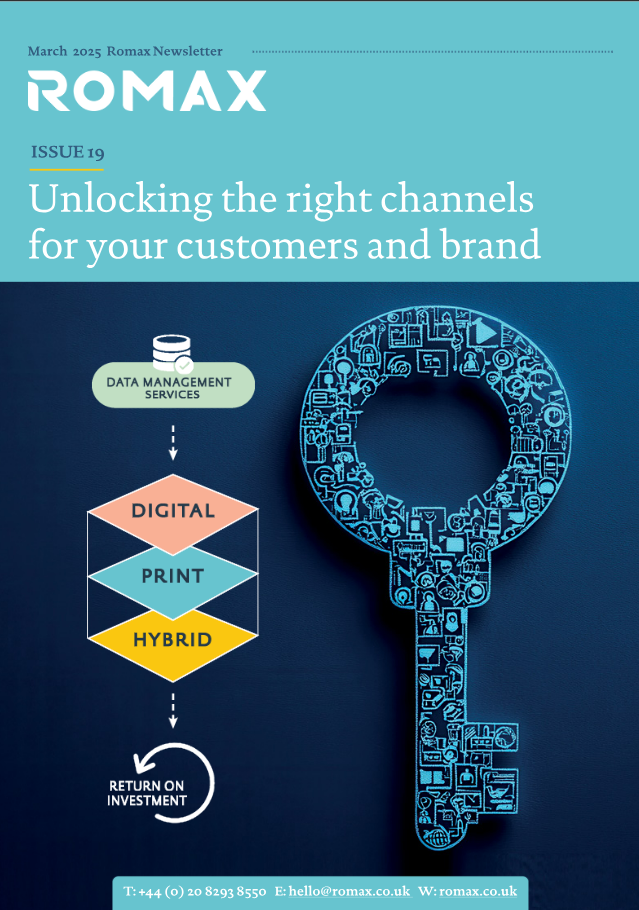Data is everywhere nowadays. Continued improvements in computing technology have empowered individuals and organisations to create diverse data (e.g. online content, time-stamped and machine data etc.) on a mass scale. Becoming increasingly aware about the benefits of data-driven decision making, businesses are finding more efficient ways to extract insights.
In marketing and communication initiatives, there are various sources of data that are integral in addressing questions such as:
- What aspects of a product or service do customers find valuable?
- Is there a need that is currently not met by the market?
- What drives customers towards certain actions?
- How should content be crafted to make it relevant and grounded in user experience?
Without continued efforts to collect and analyse data that helps answers these questions, competitors who are more data savvy can take the upper hand and leave you behind.
Patterns are embedded in data
Data management companies like Romax enable businesses to be strategic when implementing marketing and communication efforts.
In order to be strategic, seemingly disparate sets of information are rigorously examined for recurring patterns. These patterns exist across a range of data types, from demography and purchase locations to survey responses and user feedback.
From these patterns, insights are derived about the ideal audience and user preference. All of these feed into the overall strategy that helps craft relevant messages. Ones that truly engage people and spur them to action.
From a larger perspective, it’s about transforming complex data into simple actionable insights.
The process is crucial
However, data by itself won’t impact an organisation or strategy overnight. The process of managing (collecting and analysing) the data plays a central role in providing a comprehensive narrative of what’s really happening.
According to PricewaterhouseCoopers’ Data & Analytics team, problems start to arise when the handling of data causes quality issues down the line. The IT department may be tasked with building the necessary systems to store and process data, but various departments or teams are the ones that will directly use the data.
Without the right processes and expert advice, data inaccuracies and misinterpretation are extremely difficult to resolve.
Where do you start?
Any business that is serious about harnessing data should first identify where it should be collected. How you go about this will largely depend on the specific industry or area where you operate.
Next, businesses must make the proper investments, with the following goals in mind:
- Orient the entire organisation about the importance of finding data and the process of managing it;
- Equip staff with data literacy skills that enable them to incorporate key information into marketing messages and campaigns; and
- Tap the expertise of data management specialists, if need be, to analyse more complex data sets.
Effectively manage your data with Romax
As one of the leading data management companies in the UK, Romax specialises in a range of data management services like data profiling, acquisition, cleansing, mining and more. Through our services, we help you avoid unnecessary losses and ultimately improve targeting across your campaigns.
If you’re interested in working together, call us on +44 (0)20 8293 8550 or email us at hello@romax.co.uk
« Three Ways You Can Make Your Direct Mail Campaign More Sustainable Reboot your business »



